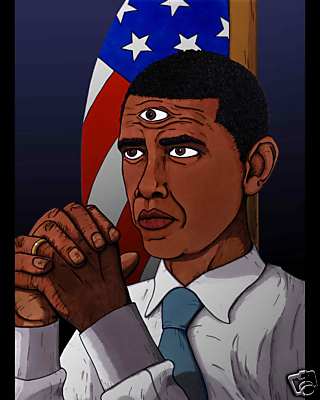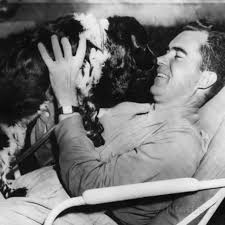Part 9
Sunday, December 31st, 2006I have given Lyndon LaRouche more sustained thought than I ever thought I could, and now I am coming close to the point where I can exile him out of my head for a good little while. I’m almost done, except for some additions to add to the previous 8 chapters of the story. I am going to have to figure out where to slide his work on behalf of lowering the standard operatic tuning pitch to A=432. In 1989, The “Schiller Institute” rented Lisner Auditorium and put on perfermances of scenes from “Aida,” “Don Carlos,” “Rigoletto” and other operas sung slightly and consistently off-key, off-key compared to the standard pitch of A=440. A bill was pending through the Italian Parliament, urged on by LaRouche, to to make A=432 the mandatory pitch standard for all Italian music schools, opera houses, orchestras, public radio and television and other musical organizations “in any way subsidized by the State or public agencies.” Use of tuning forks, etc., that do not conform to this standard would be punishable by fines ranging from 100,000 to 1 million lire (approximately $75 to $750) and “confiscation of the non-standard object.” — (that’s a cut and paste job from The Washington Post explanation on what the hell is going on here.) Opera Fanatic Magazine published a 14 page article that accused LaRouche of cherry-picking Verdi’s 19th century settlement on A=432 as the universal standard pitch.
And thus went the most placcid controvery LaRouche ever involved himself in. I presume that the students who attend LaRouche’s “cadre schools” are taught to sing from the A=432 pitch.
Hey! Cadre Schools! You know about those things, don’t you?
As for the LaRouchites being “surprisingly tunefulâ€, they are. And, they do practice their singing at LaRouche Camp, aka Cadre Schools… When I attended one of these cult like weekend getaways, I saw them practice endlessly. That’s pretty much all they did the one day I stayed. They where practicing from like 8 in the morning to 12, then there was this “representative†who would give a class on Schiller or Plato (one of those) for 7 (SEVEN!) hours, then they where singing again… All they sing is opera and Negro Spirituals for some fucking reason. And don’t even think about talking rock and roll music in front of them, to them, or in “The House of LaRoucheâ€, you may as well fart in their faces cause they find it highly offensive. And I am not kidding that when they sang the “Battle Hymn of the Republic†they changed the lyric of “my eyes have seen the glory of the coming of the lord†to “my eyes have seen the glory of the coming of LaRoucheâ€! That was so creepy! For a moment I thought ‘o Lord, they’re gonna feed us apple sauce or Kool-aid laced with arsenic once they’ve brainwashed us all’…
Oh, I almost forgot to mention that they hold these “cadre schools†which is a trip they take up to the mountains for a weekend full of “enlightening, earth shattering ideasâ€. Anyway, my pal dragged me to one of these once and all they do is talk about the golden ration, the doubling of the square, the British royal family (it’s so funny, they claim the queen is a drug smuggler lol), and all these conspiracies and how Larouche is the only one who can make a difference. After this cadre school, I NEVER wanted to know about them ever again and I along with five other people took off. When they started talking about rock music, one of the members said that he had hoped they’d make John Lennon’s day of assasination a holiday, we said screw it and drove off in my car. One guy tried to stop us and told us “if you leave, you will have the deaths of hundreds of palestinian children on your conscience.â€
It is part of Lyndon LaRouche’s 1999 innovation in creating the “LaRouche Youth Movement”, an organization that plucks college students out of college and puts them to work for Lyndon LaRouche and … his movements. Anecdotally, the first sighting I ever had of LaRouchites — in the physical flesh — were two elderly and one late – middle aged people hawking LaRouche pamphlets on the edge of a college campus, the words “New Sex Scandal! Alan Greenspan is Screwing the Economy” draped over their card-table.
Years later, the LaRouchites started to become more a lot more seen and herad on campuses across the nation. And they are, in bulk, college drop-outs. The LaRouchites that you see today are, in the main, products of the “LaRouche Youth Movement”. It’s an interesting little tweak, particularly seeing as they have no memory of LaRouche’s entry into public conciousness through the 1980s. Presumably a lot of things are simply re-assorted from previous LaRouche techniques, and I’m guessing that there is a lot of the under-current that pops through this odd little “Ask the Boston Globe” letter from 1980 proving there’s nothing new under the sun:
From “Ask the Globe”, Boston Globe, 11-8-1980:
Can you give me an address for former US Labor Party cheif Lyndon LaRouche, who entered several state primaries last spring as a Democratic candidate? My dauther has been working for him for several years but has stopped writing home and I am trying to locate her. — JM
I can get to the explanation for the “LaRouche Youth Movement’s” genesis from something a LaRouchite recently blogged. I’ll take the word for it.:
The decision by the 80-year-old Lyndon LaRouche, the leading scientific and political figure of our age, to form an international youth movement, as an absolutely essential instrument for the success of his efforts to turn the United States, and the world, back from the abyss of a New Dark Age, has raised new, fascinating questions about the role of youth movements in history. Clearly, as LaRouche himself has said, like revolutions, not all youth movements have been positive forces for mankind. But there is one leading example of an indispensable youth movement which did play a positive role: That youth movement was that of the American Revolution itself.
Understand that Larouche wrote in his 1979 autobiography “If a small group not only accurately assesses the nature of this lawful course of [historical] developments, but is able to chart the merging course of events, that relatively small group can exert an unusaul influence upon larger groups.” It all starts to gain a similar repetitive cadence. The Cadre Schools are just another adjustment of “ego-stripping”, with what I imagine the vision of the various LaRouchites running for school board positions, a return to the “classics”, which in this case is largely focused on the mystical properties inherent in Doubling the Square. (Interesting progression of links when you google “Double the Square”.)
The techniques are faintly familiar. Park yourselves on college campuses and cast your net. Plan a Day of Disruption where a horde of LaRouchites attend lecture classes and disrupt it to the LaRouche agenda. And take students who express interest or curiositity to the cadre schools.
I have to admire LaRouche’s timing. The LaRouche Youth Movement was right there in place to take advantage of the post 9/11 era and ensuing Bush Era. I have listened to a local LaRouchite on the radio — to his discredit, Clyde Lewis interviewed one a couple of times. He made sure to interject that “The government committed 9/11.” I have asked a LaRouchite why he took this cause. He provided an answer of figuring out the world’s problems, not getting anything good at school, recognizing the upcoming economic crisis, and awkwardly stuffed in “the government committed 9/11” — in a manner that suggested he wanted me to take offense, which I did not.
You can move on from there right into the “Neo-Con Agenda”. After all, didn’t you know about the PNAC Document and the call for a “Pearl Harbor type event”?
In large areas, the Bush Administation was making it easy for them. The LaRouchites charged Bush with being an empty-headed puppet of the real man in charge — the evil Dick Cheney. Who can disagree?
The Weekly Standard, National Review, and other conservative magazines now had a handy rhetorical device to bludgeon critics of the march to War in Iraq: You sound a lot like Lyndon LaRouche with your crazy conspiracies. (There are historical precedents: such was the case with Iran — Contra.) It can be spun further in any direction — Prescott made business deals with the Nazis, you know. (For the record, I do not know whether this is the case or not. A LaRouche publishing house published a book saying as much. And more credible newspapers have reported as much.) The implication being… hereditarily speaking, of course…
The blockbuster trilogy of pamphlets in the “Children of Satan” series could be peddled in the corners of war protests. The name has stuck well.Â
It was in this political environment that Jeremiah Duggan was coaxed into the cult, and met his suspicious death.Â
WHEN Erica Duggan picked up the phone, her blood ran cold to hear her terrified son crying: “I’m in deep trouble… I’m frightened.” Hours later, Jeremiah Duggan was found dead on the hard shoulder of a busy dual carriageway in Germany. Police concluded he had committed suicide. But his family refuse to accept that verdict, insisting the talented 22-year-old student was hounded to death – or even murdered – by a sinister cult.
Today:
Almost four years after Jeremiah’s death Germany’s highest court looks set to order a fresh investigation, a breakthrough for Erica’s campaign to find the truth behind her son’s death.
And it goes on from there.



